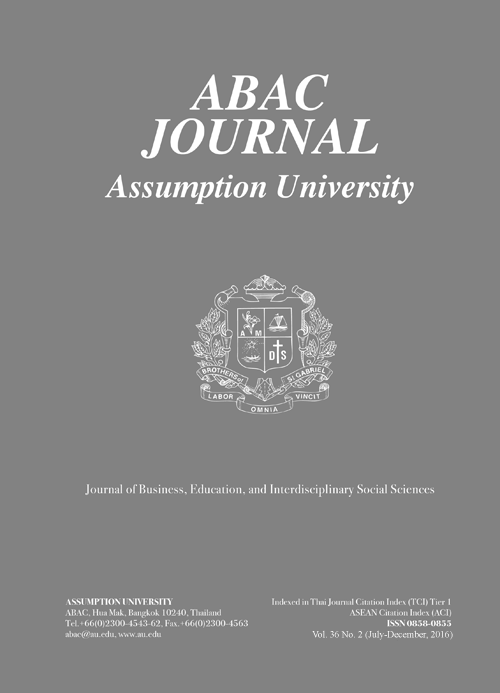Tax and Environmental Incentives to use Hydrocarbon-Based Air Conditioning Units in Thailand
Keywords:
Hydrocarbon-based air conditioning unit, environmental incentives, environmental tax laws and ozone-depleting substances.Abstract
Environmental protection is one of the most important global issues in the 21st Century, and ozone layer depletion is among the most serious environmental problems. The ozone layer is being destroyed by a group of manufactured chemicals containing chlorine and/or bromine. These chemicals are called ozone-depleting substances (ODS). The main ODSs are chlorofluorocarbons (CFCs) and hydrochlorofluorcarbons (HCFCs), which are mostly being used in refrigeration and air conditioning (RAC) systems. The Montreal Protocol is an international agreement to protect the ozone layer, and Thailand is one of the countries which have signed it. Under the Montreal Protocol, Thailand has committed herself to phase out and phase down the use of ODSs, but this would be impossible without a clear environmental tax law to control import/export and the use of ODSs and ODS-based refrigeration and air conditioning (AC) units. Thailand is listed as a developing country in the Article 5 countries of the Montreal Protocol, which states that all of the Article 5 countries should phase down and ban the use of ODSs with the help of laws and regulations. The situation in developed countries is totally different. They must ban the use of ODSs faster than Article 5 countries because due to their facilities doing these kinds of projects, is much more easily practicable and faster than in developing countries.
There is no environmental tax law in Thailand to control or ban anufacturers from producing HCFC- and HFC-based AC units and the traders from importing them. This lack of an environmental tax law is a barrier to the incentivizing of the use of ODS alternatives, such as hydrocarbon (HC) based air conditioning units. In addition, the customs tariffs for all gasses used in AC units are the same, and all of them are under the same section in the Harmonized System (HS) code, so this is another disincentive to the use of HC-based AC units. This article looks at the environmental tax laws of Australia and the United States as the best means and most successful instances of control and banning of the use of ODSs and ODS-based equipment. This study suggests that Thailand must ratify an environmental tax law and amend the customs laws and regulations in order to achieve its obligations under the Montreal Protocol.
Ultimately, the findings of this study aim to help Thailand develop a sustainable business model for HC-based air conditioning units among ASEAN countries, as the country plays a major role in the business of all of these countries.






